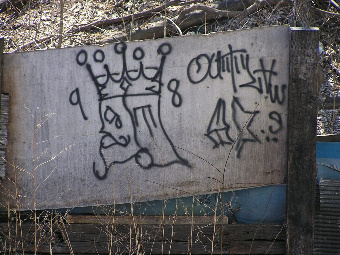Quinn Weighs in on Weis's Gang Meeting Controversy
By Kevin Robinson in News on Sep 2, 2010 2:00PM
Illinois Governor Pat Quinn chimed in on Police Superintendent Jody Weis's recent sit down with Chicago gang leaders, telling reporters that he doesn't support the strategy. “I don’t think that’s a particularly good strategy. … I just don’t think those are the people you want to be talking to,” Quinn told the Sun-Times. “I think it’s better to be fighting against assault weapons and protecting our officers and our communities against gang bangers who have assault weapons that are perpetrating mayhem and terrorism on the streets of Chicago. ... I’m running against somebody who supports assault weapons. Sen. [Bill] Brady, every chance he gets, votes with the guns. I don’t think that’s the way to go.”
The meeting between Chicago's top cop and city gang leaders has divided the city council, unsurprisingly. along racial lines. White aldermen expressed outrage to the local media about the meeting, calling gangs "urban terrorists," while Black and Latino aldermen were more circumspect about the strategy. And while Second City Cop has been critical of the mayor's most recent strategy, Joe the Cop at Chicago Now looked back at history for some context:
In the late 1960's Jeff Fort, leader of the Blackstone Rangers (later the Almighty Black P-Stone Nation), presented himself as a community leader, someone who government needed to work with in order to reach black youth. Fort worked with area ministers and managed to con enough people (as evidenced by this 1969 article in The Atlantic that breathlessly asked "Are the Blackstone Rangers a corrupt, exploitive [sic] street gang? Or a constructive engine of community black power?") to obtain federal money. The money was intended for a jobs program. (Note: in a deja vu-inducing parallel, the Sun-Times article about Weis' gang meeting said "The gang leaders were provided with information about jobs, too." At least the gang leaders who met with Weis weren't also offered grant money, at least that we know of.)Fort used the money to further his criminal enterprise, and went to federal prison in 1972 for doing so. Fort's organization morphed into the El-Rukn street gang after Fort's "conversion" to Islam while in prison. The El-Rukns eventually tried to make a deal with Libya to commit acts of terror in the United States, and Fort is now serving a 75-year sentence in a Federal Supermax prison as a result.
